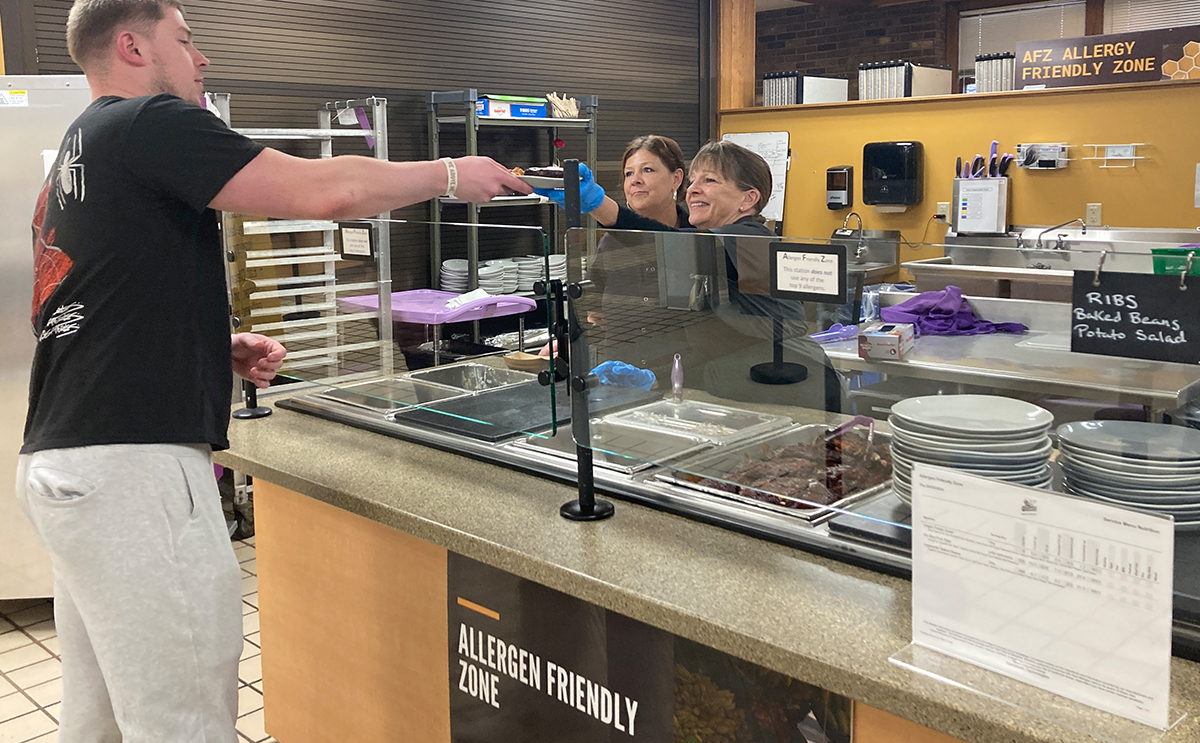Serving up three square meals, plus snacks, seven days a week is already a tall order, but changing tastes, food allergies and special diets require new approaches in the kitchens at Baldwin Wallace.

Every Baldwin Wallace University graduate likely remembers a favorite comfort food item from their college dining hall days, and a late-night slice never goes out of style, whether you remember the era of Pizza King or currently trade meal swipes for Domino's.
But as student tastes and dietary needs have changed, so have campus menus.

In an April Cleveland Magazine feature story titled "Diners, Drive-Ins and College Mealtime Dives," BW dietitian Marie Oravec reported that BW Dining Services stations like the grill and salad bar have stood the test of time, but "Some students have asked for changes, so we keep it up to date."
As examples, she noted the recent additions of a hummus bar with pitas, carrots and celery for scooping, as well as "an area dedicated to yogurts and toppings so they can make a healthy parfait, and it's something they can create and control the portion and nutrients."

Charles Fairchild, BW's senior director of auxiliary services, added that food off the smoker is popular with students. "We're smoking our own meats –– we'll even smoke cauliflower and broccoli for Pho bowls."
Students can also choose from vegan and gluten-free offerings, and BW will prepare special meals for students with celiac disease or other special needs.
A designated "Allergen Friendly Zone" serves up daily fare that steers clear of the top nine common food allergens.
Fairchild says that food has broad appeal beyond students with food ingredient sensitivities. "The athletes love it, many students love it because it's clean."
We are PROUD to announce that Baldwin Wallace University dining services is food allergy trained and equipped with stock...
Posted by Allison Rose Foundation on Friday, January 26, 2024
BW also offers allergy training for dining services employees, which recently included free training through the Allison Rose Foundation as BW became the first university to stock foundation-funded Anaphylaxis Emergency Kits equipped with epinephrine auto-injectors in dining halls.
Michael and Rebecca Suhy named the foundation in memory of the daughter they lost to a food allergic reaction.
Oravec says she is "proud and happy" to have partnered with the foundation to make the EpiPens available at BW at no cost.
"Everything we do is about our students; we keep them well-nourished so they can excel in and out of the classroom."